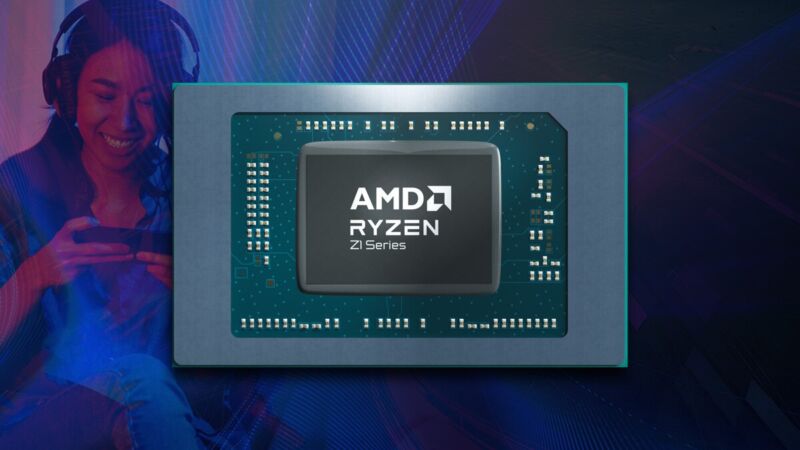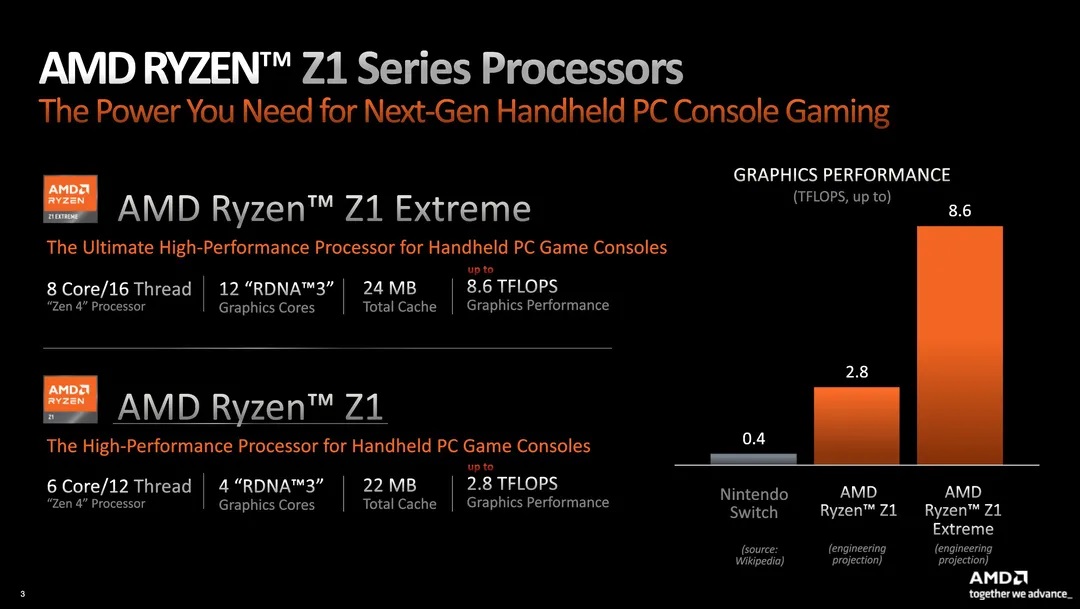AMD’s Ryzen Z1 chips could power a new wave of handheld Steam Deck clones

Enlarge / AMD's Ryzen Z1 chips are APUs tuned specifically for handheld gaming PCs. (credit: AMD)
Nvidia GPUs power the vast majority of gaming PCs, but for more integrated game systems like consoles and handhelds, AMD's ability to offer tightly integrated Ryzen CPUs and Radeon GPUs has earned it many customers (and lots of revenue). The most notable of these is Valve's Steam Deck, which combines a Zen 2-based CPU and RDNA 2-based GPU cores to provide passable performance for most games.
Though AMD designed the Steam Deck's chip exclusively for Valve, today, the company is announcing a pair of Ryzen chips aimed at the growing number of Steam Deck-esque handheld PCs from other companies. The Ryzen Z1 and Z1 Extreme (respectively) combine 6 or 8 Zen 4-based CPU cores with 4 or 12 RDNA 3-based GPU cores, using AMD's latest architectures and a 4 nm manufacturing process to outrun the Steam Deck's APU.

The Z1 and Z1 Extreme are new APUs made specifically for handheld gaming PCs like the Steam Deck. (credit: AMD)
AMD says (via The Verge) that the Ryzen Z1 can run games about 55 percent faster than the Steam Deck, reflecting the improved performance and efficiency of the newer architectures and manufacturing process. Interestingly, the Z1 Extreme's extra GPU cores (12, up from 4 in the Z1) improve gaming performance, but they don't come anywhere near tripling or even doubling it. The extra hardware helps, but we're still dealing with integrated GPUs here, attached to a relatively slow pool of DDR5 that they share with the rest of the system rather than dedicated GDDR6 or GDDR6X memory.
Read 4 remaining paragraphs | Comments
from Gaming & Culture – Ars Technica https://ift.tt/37gqhfR